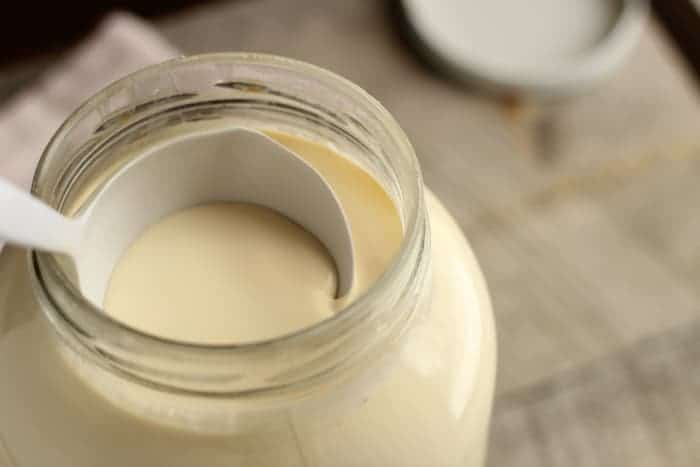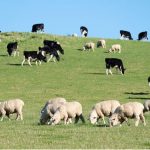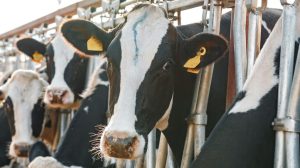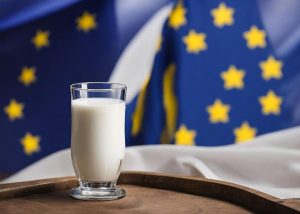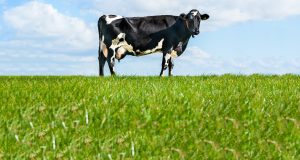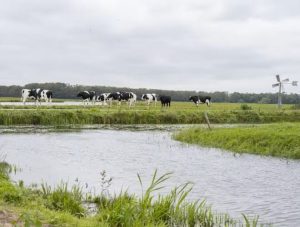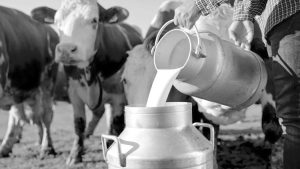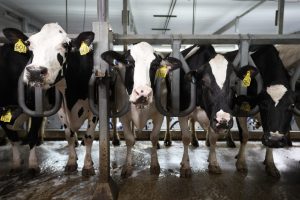
In the production process of grana-type cheeses, such as Parmigiano Reggiano PDO and Grana Padano PDO, the milk undergoes a fundamental technological step before being processed in vats: milk is poured into special tubs for natural creaming.
This step consists in a partial skimming of the milk in steel containers at a temperature of 10-20 °C (minimum 8 °C as per the disciplinary of Grana Padano); overall, the step lasts about 10-12 hours. For these two PDO productions, natural creaming is critical as it is aimed at:
- achieving the correct fat/casein ratio of the milk processed in vats. For Parmigiano Reggiano PDO, the goal is to achieve a ratio not exceeding 1.1 +/- 12%; for Grana Padano PDO, this parameter must be between 0.80 and 1.05;
- disinfecting milk, a process which also affects microorganisms that may hinder dairy processing. It occurs thanks to the adhesion of bacteria to fat globules and physical-mechanical events (“dragging”) due to the ascent of fat globules. Furthermore, this step takes place at average temperatures of 16 °C, which are not sufficient to block enzymatic reactions and, in particular, to inhibit the proliferation of bacteria (such as mesophiles). A positive aspect is the growth of technologically useful lactic acid bacteria;
- a satisfactory desporification;
- improving the technological characteristics of milk in terms of acidification, coagulation and syneresis. In particular, the goal is to improve reactivity of the rennet and draining capacity of the curd.
Therefore, during this step, important chemical, physical and biological changes occur in the milk. For it to be successful, the followings will be fundamental: time and temperature of milk storage at the farm gates, how milk collection is carried out, its aptitude for natural creaming, and, once in the tub, the height of the milk layer during the process. If milk is shaken during collection and transportation to processing plants, this may worsen fat globules in the ascent towards the surface of the milk.
At the end of this step, we will have two different products: partially skimmed milk, to be used in cheese making; the resulting cream, which can be used for butter production.
From a chemical-physical point of view, the partially skimmed milk, which will be used for cheese making, undergoes important changes. The ratios between the main organic and inorganic components change, with a simultaneous increase in titratable acidity. The pH slightly increases, and this lengthens milk
coagulation times. Time needed for proper coagulation is reduced, and curd consistency and draining capacity improve. Basically, if on the one hand the coagulation of whole milk is faster, that of low-fat milk is slower but leads to a stronger curd.
The by-product resulting from natural creaming is a cream that can be used for the production of butter. However, since the cream is obtained from raw milk and considering bacterial proliferation, it is a product that must be subjected to further technological treatments, such as pasteurization.
Therefore, the importance of the natural creaming in products such as Parmigiano Reggiano PDO and Grana Padano PDO lies not only in reduction of fat content, but also in the great added value linked to the chemical, physical and microbiological changes in the milk. Moreover, it allows to obtain a by-product, cream from natural creaming, which can be further valorized. Alpha Solutions advisors will be able to help you in setting up a production process aimed at maximizing yields and optimizing it from a technological point of view.
References
Germano Mucchetti, Erasmo Neviani, 2006. Microbiologia e tecnologia lattiero-casearia. Qualità e sicurezza. Tecniche nuove
Cheese Franceschi, Brasca, Malacarne, Formaggioni, Faccia, Natrella, Summer, 2021. Effects of the Cooling Temperature at the Farm on Milk Maturation and Cheesemaking Process in the Manufacture of Parmigiano Reggiano PDO. Animals 2021, 11, 2835. DOI: https://doi.org/10.3390/ani11102835
CRPA SCHEDA
CRPA, 2007. Conservazione e maturazione del latte per Parmigiano Reggiano. http://www.crpa.it/media/documents/crpa_www/Pubblicazi/Opuscoli-C/CRPA-6-2007.pdf
Disciplinare di produzione del formaggio Parmigiano Reggiano
Disciplinare di produzione Grana Padano DOP
Marco Loguercio

Senior Technical Consultant
Alpha Solutions, Food and Ingredients
mlo@alpha-solutions.it
Senior Technical Consultant
Alpha Solutions, Food and Ingredients
mlo@alpha-solution.it
